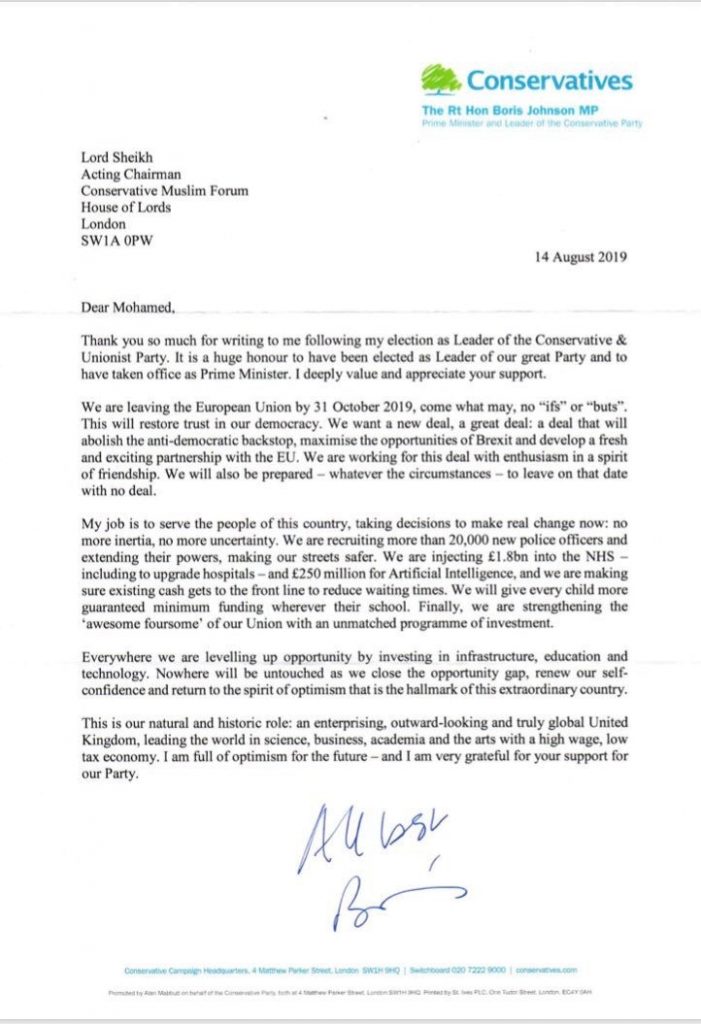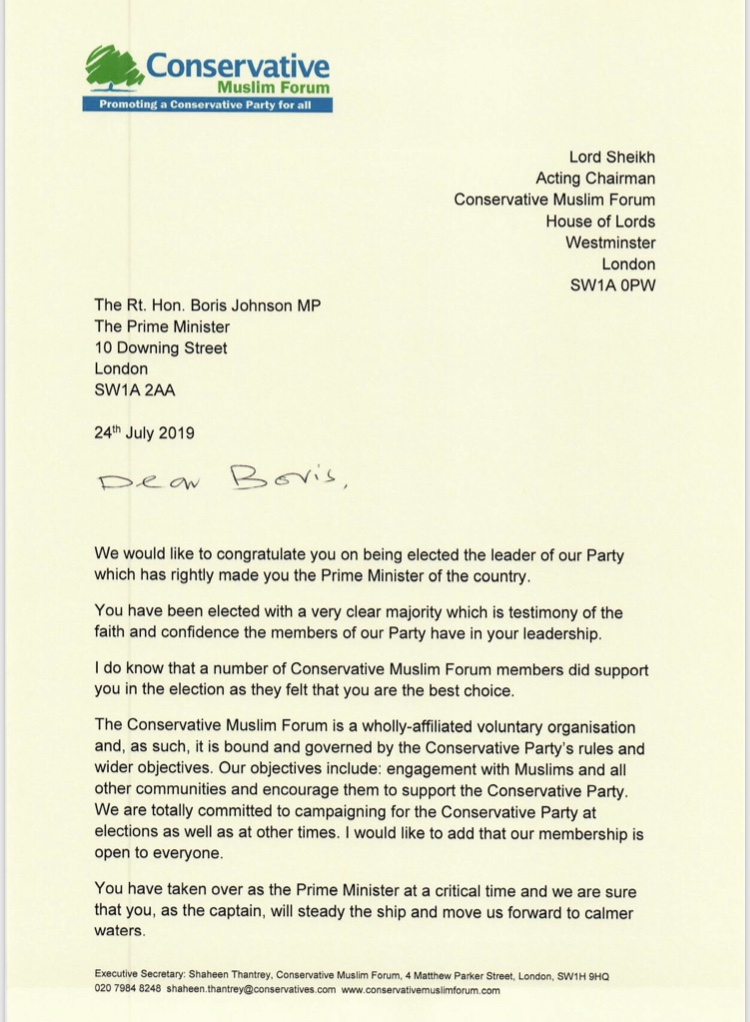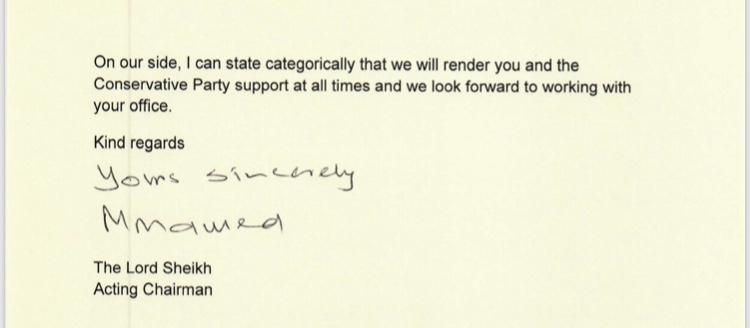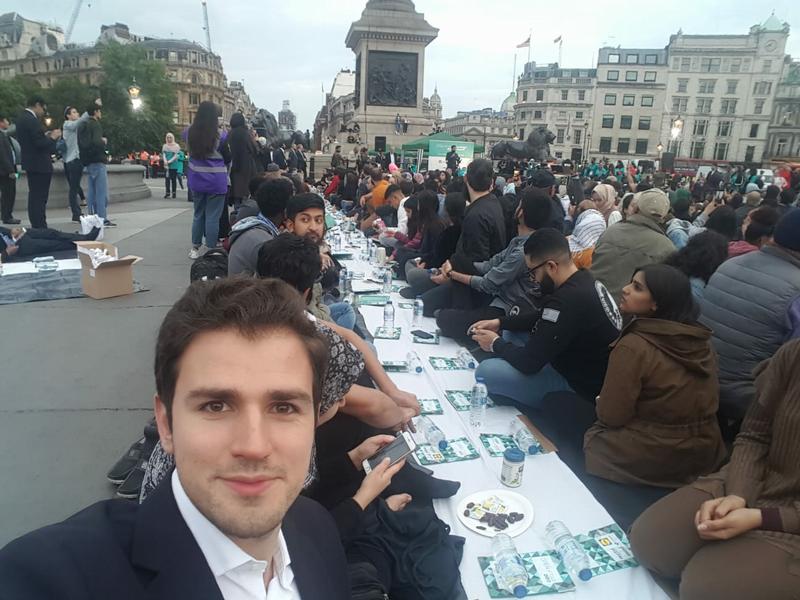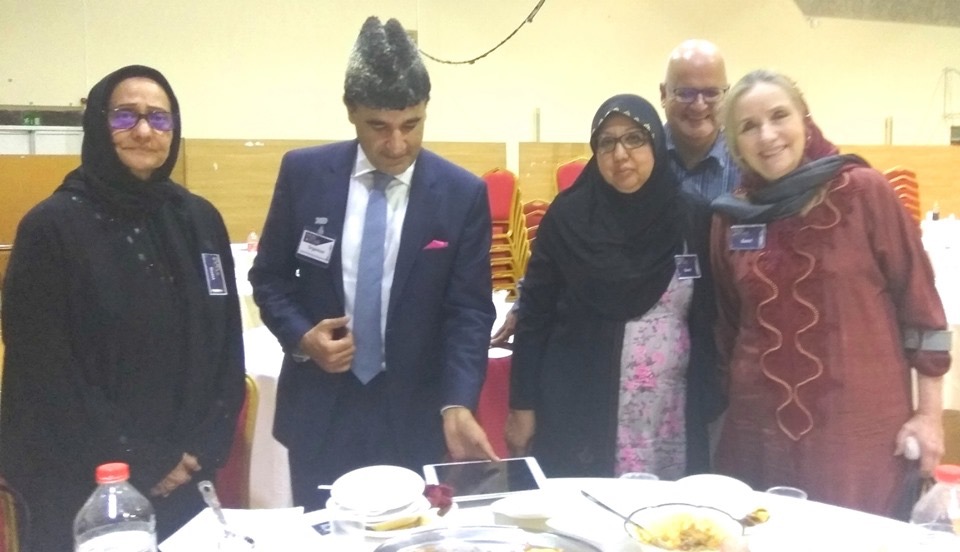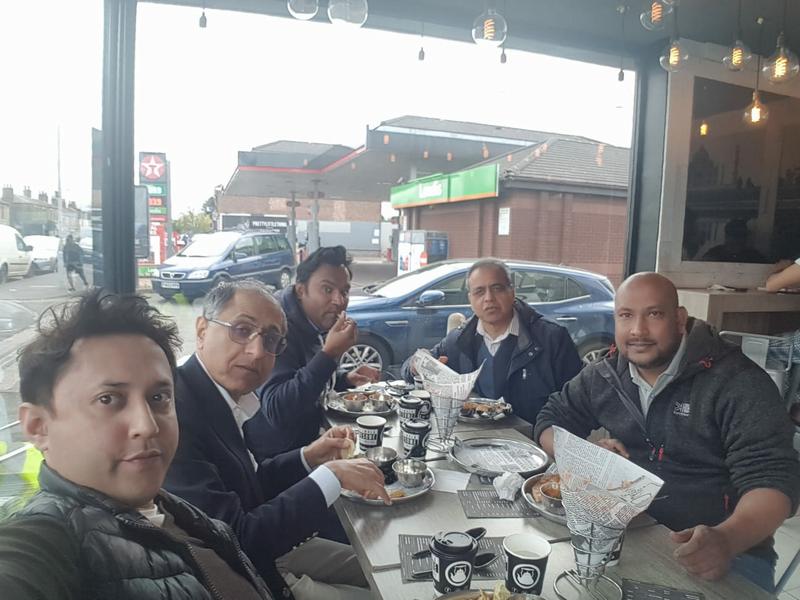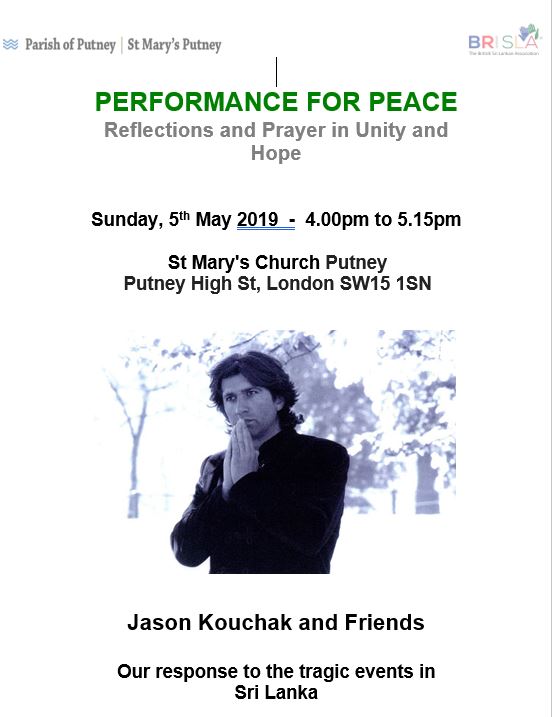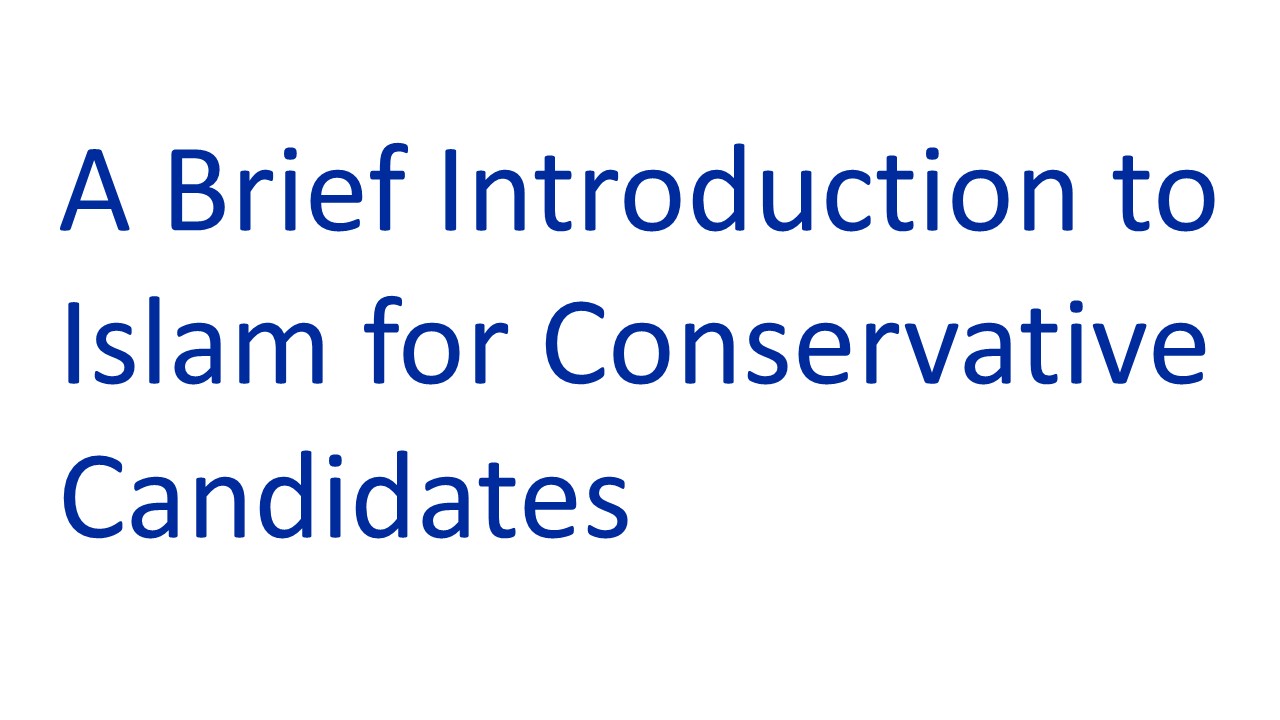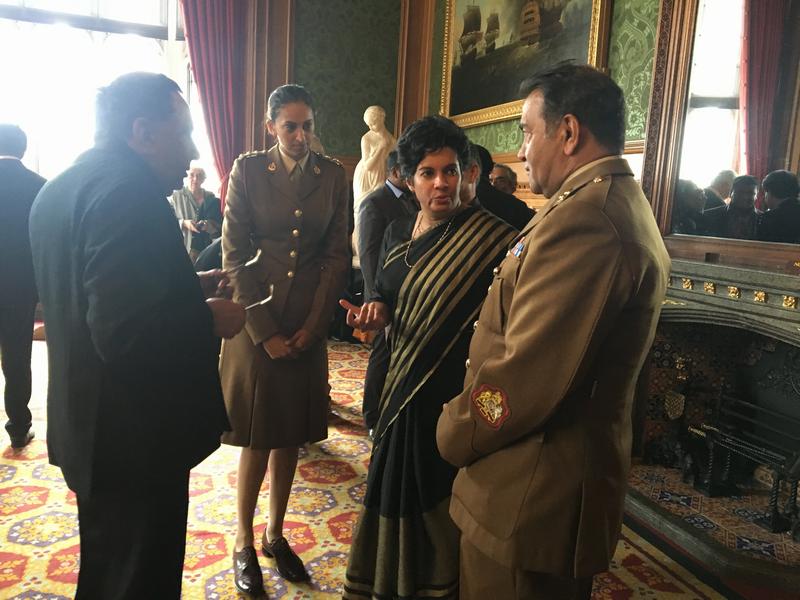In 2014, Mohammed Amin authorised the CMF to make copies of his short guide to Islam for non-Muslims available to fellow Conservatives. At that time, we made it available on request via Conservative Campaign Headquarters.
However, we are conscious that this method in practice severely limits its distribution. Accordingly, we have made it available on this website page below. We recognise that this means it is equally available to members of other political parties. On balance, we consider that to be worthwhile rather than undesirable.
A printable PDF can be downloaded by clicking the cover image.
“A Brief Introduction to Islam for Conservative Candidates” by Mohammed Amin MBE
The Conservative Muslim Forum (CMF) has Mohammed Amin’s permission to share copies of his document within the Conservative Party for information purposes. The CMF is a political organisation, not a religious one, and has no views of its own on the content of this document.
Introduction
In politics, it is essential to understand what the voters to whom one is appealing regard as important and to appreciate how they see the world. This requires some basic knowledge of their religious beliefs where applicable. Your ability to communicate with Christian or Jewish voters would be seriously impaired if you knew nothing about what Easter or Passover meant to them respectively.
I meet many Conservative candidates. Some have very detailed knowledge of Islam, and in certain cases have lived in Muslim majority countries for several years. Others recognise that their knowledge is limited and say they would appreciate a concise source of basic information.
This document is intentionally brief, to concentrate on the key points. It sets out what most Muslims believe. For brevity and simplicity, I have not given any references, but there is a reading list for those who want to learn more. I have read all of the books listed and have no hesitation in recommending them.
When Muslims say or write the name of a prophet, we follow with words like “Peace be upon him” often abbreviated to “pbuh.” To avoid cluttering this document, I have not done that. However, the invocation should be assumed on each occasion when a prophet’s name appears. For simplicity, all dates are given using the standard Gregorian calendar used in the UK.
I am writing for English speaking readers. Accordingly, where a name occurs in the Bible, I have used the English spelling.
In English, “god” and “goddess” is used to refer to any divine being of the appropriate gender, whether believed to exist or not. Each of Jehovah, Baal and Jupiter are accurately referred to as a god.
Conversely in English “God” is specifically the personal name of the god who spoke with Moses, who caused the Virgin Mary to have a child and who communicated the Quran to Muhammad and is not the name of any other god. In Hebrew, Aramaic, Greek and Arabic, many different names are used for God, but all refer to the specific god mentioned in the previous sentence. The most common form of His name in Arabic is Allah, so if you obtain a copy of Genesis translated into Arabic, you will read that it starts with “In the beginning Allah created the heaven and the earth” (in Arabic). Many people who know little of Islam often incorrectly assume that the god called Allah in the Quran is a different god from God. Accordingly, for clarity I have used the single name God throughout this document except where quoting from the Quran.
While this document is copyright, I hereby give permission for it to be shared freely within the Conservative Party provided that it is not amended or abridged.
Mohammed Amin
Publisher of www.mohammedamin.com
Chairman of the Conservative Muslim Forum
© Mohammed Amin 2019
Islam before Muhammad
“Islam” is an Arabic word which means submission to the will of Allah (God) and anyone who lives his life according to God’s will is a “Muslim.” Accordingly Muslims, based on the Quran, refer to Abraham (for example) as a Muslim, a usage which sometimes confuses Jews and Christians. This is based upon the Quran, 22:78, Muhammad Asad translation which states that Islam was the religion of Abraham:
“And strive hard in God’s cause with all the striving that is due to Him: it is He who has elected you [to carry His message], and has laid no hardship on you in [anything that pertains to] religion, [and made you follow] the creed of your forefather Abraham. It is He who has named you – in bygone times as well as in this [divine writ] – “those who have surrendered themselves to God”, so that the Apostle might bear witness to the truth before you, and that you might bear witness to it before all mankind. Thus, be constant in prayer, and render the purifying dues, and hold fast unto God. He is your Lord Supreme: and how excellent is this Lord Supreme, and how excellent this Giver of Succour!”
Muslims themselves add to the confusion by failing to recognise that the usage of “Muslim” needs to change after Jesus. Although the word “Muslim” can reasonably be applied to anyone who lived before the revelation of the Quran and who obeyed and worshipped only God, this usage risks causing confusion if it fails to distinguish between Christians and Jews in, say, 300 A.D. since their practices differed. For periods after the revelation of the Quran, “Muslim” is only applicable to those who believe in the Quranic revelation, not to Jews or Christians even though they also worship God.
Muslims believe that in the beginning, God created the Heaven and the Earth. He also created the angels, animals and Adam and Eve. God commanded all of the angels to bow down to Adam, but one called Iblis in Arabic, Satan in Hebrew, refused and was cast out. Adam and Eve themselves disobeyed God and were excluded from the Garden of Eden to live their lives elsewhere on Earth. Their descendants eventually became wicked, so God caused a global flood which wiped out all humans except the family of Noah who He commanded to build the ark.
Many years later, in Ur in Mesopotamia most of the people were idol worshippers, but Abraham believed only in God. God told him to leave his home city and travel with his family to Canaan which He promised to Abraham’s descendants. Abraham’s first son Ishmael was born of Hagar, while his second son Isaac was born of Sarah. Abraham travelled far, and with Ishmael constructed a house of worship to God in Mecca at the site of the Kaaba today. The Kaaba is the approximately cube shaped building in the centre of the grand mosque in Mecca, that all Muslims face when they pray. God also tested Abraham by asking him to sacrifice Ishmael but intervened before he could carry out the sacrifice. Muslims remember that event every year at the end of the pilgrimage to Mecca, in the ceremony of Eid al Adha, when animals are sacrificed and most of the meat given to the poor.
Isaac’s son Jacob himself had ten children. Most of the other nine were jealous of Joseph who was Jacob’s favourite son and sold him for slavery in Egypt. There Joseph interpreted some of Pharaoh’s dreams, which enabled him to advise Pharaoh to prepare Egypt for a coming famine. Later Jacob and his other sons also sought sanctuary in Egypt from the famine and were reunited with Joseph.
A later Pharaoh knew nothing of Joseph, and enslaved Jacob’s descendants, the Hebrews. Eventually God revealed Himself to Moses and sent him with his brother Aaron to instruct Pharaoh to let God’s people go. After the plagues in Egypt, they eventually left with God parting the Red Sea for Moses, revealing the law to him at Sinai, and after many years in the wilderness the Hebrews, also known as Israelites after Jacob’s other name Israel, entered Canaan which was promised to them. In Canaan, the Israelites had periods of obeying God and periods of disobedience, with corresponding changes in their fortunes.
In addition to those mentioned above, the Quran specifically mentions the Biblical prophets Enoch, Lot, King David, King Solomon, Job, Ezekiel, Jonah, Elijah, and Elisha. The Quran tells us that much later Zechariah was the father of John (the Baptist.) The Quran also mentions other prophets before Muhammad, naming Shuayb, Salih and Hud, who are not mentioned in the Bible.
The Quran explains how God caused Mary to conceive despite being a virgin, and how devout her son Jesus was. Mary is the only woman mentioned by name in the Quran, and Jesus is mentioned 29 times. The Quran states categorically that Jesus worshipped God, and that he never asked other people to worship himself. It also states that Jesus was not crucified, although God caused those trying to crucify Jesus to think that they had succeeded.
Arabia at the time of Muhammad’s birth
At that time, the region was dominated by three empires. The Byzantine Empire was the continuation of the Eastern Roman Empire, controlling amongst other places what are now Egypt, Sinai, Palestine, Lebanon, most of Jordan, western Syria, North West Iraq and Turkey. The religion was Byzantine Christianity which later developed into the Greek, Armenian and Russian Orthodox churches.
The Sasanian Empire was centred on Iran but extended west to include Iraq north east of the Euphrates. The religion was Zoroastrianism, a religion dating back to around 600 BC which worshipped a god called Ahura Mazda.
In Ethiopia was an empire with its capital at Aksum. It also controlled the Yemen at times. The religion was Monophysite Christianity which believes that Jesus had only one nature, a divine one.
Between these empires were lesser states. To the east of the Byzantine Empire, in the region south of Damascus and south west of the Euphrates as far as northern Arabia was a region ruled by the Arab Ghassanid tribe whose religion was also Monophysite Christianity. To their east was a satellite state of the Sasanian Empire, the Arab Lakhmid princedom which practiced Nestorian Christianity. Nestorian Christianity was also found along the eastern edge of Arabia covering what is today Bahrain, Qatar, the UAE and Oman.
Yemen was an affluent region due to being on the trade route to India and its rich agricultural production, and at different times it had both Christian and Jewish rulers.
The central region of Arabia was inhospitable desert. That leaves the western edge of Arabia, south of the Byzantine Empire and north of Yemen, which is known as the Hejaz. It was a much poorer region than Yemen, marked by oases and by being on the caravan routes from the Yemen to the north. The population was a mixture of pagan tribes, Jewish tribes and Christians who were primarily Nazoreans (sometimes called Jewish Christians) who obeyed the laws given by Moses.
Mecca was both an important caravan staging post and a regional centre of pilgrimage for the pagan Arabs. The pagans were not unaware of Allah but regarded Him as one god amongst many in their pantheon, and the Kaaba held hundreds of idols to the many gods worshipped by the pagans. The most important tribe in Mecca was the Quraysh, and they were responsible for the upkeep of the Kaaba which generated significant income from the gifts of the pilgrims.
This was the complex, religiously mixed environment that would be totally transformed by the advent of Islam.
Muhammad’s life and early Islamic history
Muhammad was born into the Quraysh tribe in 570 A.D.. His father Abdullah died before his birth, and his mother Aminah died when he was six. Lacking a father, Muhammad was cared for by his grandfather, Abdul Muttalib, but he also died when Muhammad was eight, after which Muhammad was looked after by his uncle Abu Talib.
From an early age, Muhammad travelled with the trading caravans. He was famous for his honesty, acquiring the nickname “al Amin” (the honest one.) During repairs to the Kaaba, a dispute arose regarding which clan would have the honour of re-bedding the black stone which is at one corner of the Kaaba. As a sign of the high regard in which he was held, Muhammad was asked to arbitrate. He advised bearing the stone on a cloth each of whose corners would be held by a representative of one of the clans. When Muhammad was 25, his employer a wealthy 40-year-old widow named Khadijah proposed marriage to him; the marriage lasted 25 years until Khadijah died, and during her lifetime Muhammad took no other wives.
In 610 A.D. when Muhammad was aged 40, he was meditating in a cave when the archangel Gabriel appeared and spoke to him as follows:
“READ. in the name of thy Sustainer, who has created,
created man out of a germ-cell!
Read – for thy Sustainer is the Most Bountiful One
who has taught [man] the use of the pen,
taught man what he did not know!”
[Muhammad Asad translation]
These were the first five verses of the Quran to be revealed and are now the beginning of Surah (chapter) 96.
Khadijah was the first person to believe that Muhammad had received a revelation from God. As the revelations continued, others also came to believe. This small believing community was persecuted by other Meccans because the message Muhammad was preaching was at complete variance with pagan Meccan practices such as idol worship. Muhammad sent some of the early Muslims to sanctuary in Ethiopia, but in 622 A.D. he himself fled Mecca for Medina (then called Yathrib.) which is 339 km north of Mecca. In Medina was a small community of Muslims along with several Jewish tribes as well as pagan Arabs; Medina’s internal dissensions led its people to ask Muhammad to come and be their leader. Muhammad drew up a written constitution for Medina whose text is still available today.
There were a number of armed conflicts, as well as truces, with the pagan Meccans, but gradually more people converted to Islam and in 630 A.D. Mecca surrendered peacefully to Muhammad, and the Kaaba was cleansed of idolatry.
Muhammad died in 632 A.D. and was buried in Medina. He had not named a successor. A split arose amongst the Muslims regarding who should lead the community. The majority wanted to choose the best person from within the community regardless of familial connection with Muhammad; this faction was larger, so Muhammad’s closest friend Abu Bakr became the first caliph (Arabic for “successor” or “representative.”) A minority believed that the succession should be dynastic, and therefore wanted Ali, who as his cousin was Muhammad’s closest male relative as well as being his son in law.
The Arabic word for “party” or “faction” is “shia” and the “Shiatul Ali” (usually abbreviated to “Shia”) was the faction wanting Ali to be the first caliph. This dispute is the origin of the Shia / Sunni divide in Islam. Sunnis were the faction that supported Abu Bakr’s election. However, the word “Sunni” does not itself reference that dispute; the word simply means one who follows the Sunnah (traditions) of the Prophet, which is something that both Shia and Sunni Muslims state that they do.
The theology of Islam
The theology of Islam is very simple.
God has always existed, always will exist, has perfect foreknowledge, and is solely responsible for creating and sustaining the universe. There is no other god. God gives each of us life and has laid down the rules we should follow for living a good life. These include rules for how we should treat other people, such as the requirement to be honest and kind, and rules for how we should worship God. After our deaths, He will judge us, and if we have been sufficiently good by His standards, we shall enter Paradise; otherwise we face punishment in Hell.
The five essential pillars of Islam are:
- The declaration of faith: “I declare that there is no god but God [Allah in Arabic], and that Muhammad is the messenger of God.”
- Prayer, with five set prayer times at dawn, noon, the afternoon, sunset and the evening.
- Fasting from dawn to sunset during the month of Ramadan.
- A specific type of charitable giving called Zakat, which has set rules for computing how much to give and who is eligible to receive it.
- Pilgrimage to Mecca once in a Muslim’s lifetime if he or she can afford it and is physically able. It must be performed on specific days in the Islamic calendar, with set rites. This is called the Hajj and is distinct from visiting Mecca at any other time of the year which is called Umrah.
Islam regards itself as the continuation and perfection of the religions that came before it, Judaism and Christianity. The Quran explicitly states that Muslims believe in the earlier revelations, but also that those revelations have become corrupted over time. In the writer’s view, the most obvious example of such corruption is ascribing divinity to Jesus.
The development of Islamic jurisprudence
The Old Testament, especially within the first five books, contains a number of rules for how Israelites should live. However these rules needed significant extension by rabbinic analysis to provide a code of Jewish law for either a Jewish kingdom (for example in the Holy Land until the kingdom was destroyed by the Romans or in Yemen or Khazaria), or to govern the lives of Jews in states ruled by followers of other religions.
The Quran is much shorter than the Old Testament and contains very few rules of law. Accordingly, Islamic law was developed by the early religious scholars, the most prominent of whom gave their names to the four main schools of Islamic law (Shariah) amongst Sunnis:
- – Abu Hanifa (699 A.D. – 767 A.D.)
- – Malik ibn Anas (711 A.D. – 795 A.D.)
- – Shafi (760 A.D. – 822 A.D.)
- – Ahmed ibn Hanbal (781 A.D. – 856 A.D.)
The main school of Islamic law amongst Shia Muslims is named after Jafar ibn Muhammad al-Sadiq (702 A.D. – 765 A.D.).
Unlike Roman Church law, Shariah has never been codified. Accordingly, while the schools of law agree about the fundamentals of Islam, they differ on many issues. For example, they diverge on whether a man needs to ask his first wife’s permission before he takes a second wife.
Around 770 A.D. opposition developed against the schools of Islamic law, from “the people of the tradition” (ahl al-hadith in Arabic) who rejected the logical analytical methods of “the people of opinion” (ahl ar-ray). Instead they wanted Islamic law to be based on following the traditions, namely the sayings and actions of Muhammad. This made much more significant the question of deciding which traditions were authentic and led to their formal collection in books. Until then they were circulating primarily in oral form.
The most respected hadith collection was compiled by Bukhari (died 870 A.D.) in 97 books which now form nine volumes in English translation. Five other collections regarded as canonical by Sunnis followed, from Muslim (died 875 A.D.), Abu Dawud (died 889 A.D.), Ibn Maja (died 886 A.D.), Tirmidhi (died 892 A.D.) and an-Nasai (died 915 A.D.). The founders of the schools of law mentioned above had also made hadith collections which are also valued. While the hadith compilers devoted enormous efforts into excluding inauthentic hadith, Muslims recognise that some hadith included in the collections are more reliable than others. The assessment of hadith reliability is an important part of the formal education of Islamic scholars today.
With the formal collection of hadith, gradually a synthesis developed whereby the schools of Islamic law treated hadith as the main source of jurisprudence after the Quran.
Frequently asked questions
Was Islam spread by forced conversion?
The Muslim Arabs fought against and conquered the empires around them to gain agricultural land, and other resources. They established systems of government over the conquered territories, but the inhabitants were free to retain their religions. (The exception is Arabia itself from which Jews and Christians were expelled.) Over time many of the conquered peoples converted, but the survival of large Jewish and Christian minorities into the 20’th century is evidence against forced conversion. Occasionally local tyrannical rulers did engage in forced conversion, for example the Almohad dynasty which took control of Andalusia in Spain in 1147 A.D. However, such religious oppression was relatively rare in Islamic history.
Does Islam treat religious minorities as second class?
The second caliph Umar, who conquered Jerusalem, set down rules for the treatment of Christians and Jews. Unlike Muslims, they were exempt from compulsory military service, and also did not have to pay Zakat. Conversely, they were liable to pay a poll tax, called jizyah in Arabic, had to wear distinguishing clothes, and faced some restrictions on building. Christians and Jews were called dhimmi (protected people); a category that was gradually extended to include all non-Muslim minorities.
From a 21’st century perspective, some would consider dhimmitude to be a form of second-class status. However, in almost all cases the treatment of religious minorities by Muslims was far superior to the way that Christians at that time treated religious minorities.
Why is there no separation of church and state in Islam?
Muhammad was both the leader of Islam and the head of government in Medina. After he died, both roles were taken over by Abu Bakr as caliph, although of course all prophecy ended with the Muhammad. All legal questions about what Muslims could or could not do were questions about Islamic law.
However, with the passage of time, the role of Caliph became hereditary and history records several major dynasties. As the territory controlled by Muslims increased there came to be regions which were governed independently of the historic centre in Medina. It could not be said of these regional leaders that they were all heads of the religion of Islam. Later still the Ottoman Sultans found it necessary to create laws (known as “kanun” in Turkish) by fiat which did not derive their authority from the Quran or Prophetic traditions but simply from the Ottoman Sultan himself. Today most Muslim majority countries have legal systems where legislation is made by secular legislative bodies, sometimes with exceptions for Muslim personal law as in Malaysia.
Accordingly, it is an exaggeration to say that Islam recognises no separation between church and state.
Are Muslims allowed to leave Islam?
Many Muslim scholars believe that conversion out of Islam should be punished by death. However, there are many other Muslim scholars who consider that Muslims face no earthly penalty for abandoning Islam.
What is jihad?
It is an Arabic word which means struggle. Muhammad taught that the most important form of jihad is the struggle a Muslim undertakes with himself to live his life as well as possible in accordance with God’s laws.
The second and lesser meaning of jihad is military action to defend the Muslim community against attack. This was necessary as the Muslims of Medina were regularly attacked by the pagans of Mecca. Later Islamic jurisprudence lays down a number of rules regarding jihad, including the requirement that jihad can only be declared by the head of the Muslim religious community, the caliph. As there is no caliph now, all current purported declarations of jihad are not competent.
Why do Muslims object to receiving or paying interest?
In four places, the Quran prohibits something called riba in Arabic. There are also a number of hadith which give guidance on what constitutes riba. From these sources, many Islamic scholars conclude that interest in all circumstances constitutes riba and is prohibited. Other scholars consider that interest is only prohibited as being riba when it is excessive and there is unequal bargaining power between the parties.
Can Muslims marry non-Muslims?
The Quran permits Muslim men to marry Jewish and Christian women. However, there is no equivalent religious permission for Muslim women to marry non-Muslim men.
What does halal mean?
Halal means pure, lawful and permissible for Muslims. The most common usage of the word today is in connection with food, particularly food from animals.
Some animals are inherently forbidden for eating, for example pigs, except when it is a life or death emergency. Other animals, for example cows, can be eaten but must be slaughtered in the prescribed manner. This entails the throat being cut by a Muslim slaughter-man who says a specific invocation with the blood then being drained from the animal. Most Muslims believe that the animal should not be stunned before being killed.
What is Eid?
Eid is a religious festival. The two main Eid festivals celebrated by all Muslims are:
- Eid ul Fitr which celebrates the end of the fasting month of Ramadan.
- Eid ul Adha which commemorates Abraham’s willingness to sacrifice Ishmael. This festival takes place at the end of the pilgrimage to Mecca, the Hajj.
Many Muslims also celebrate Muhammad’s birthday, which is called Eid Milad un-Nabi, while many others do not.
Why do Shias flagellate themselves?
Ashura is the tenth day of the month of Muharram, which is the first month of the Muslim calendar. On that date in 61 A.H. (680 A.D.), Hussein, the younger grandson of Muhammad was killed at Karbala in present day Iraq along with his son and supporters by the army of caliph Yazid. His death is regarded as a tragedy by all Muslims. Shias in particular mark the day by lamenting his martyrdom and the failure of their ancestors sufficiently to assist him, leading some to flagellate themselves.
Further reading
“The Qur’an” (Oxford World’s Classics) translated by Muhammad Abdel Haleem
I recommend this as the first Quran translation for English speakers to read, because of the clarity of its modern translation. Also, it has very few footnotes to break up your reading of the text itself.
“Muhammad: His Life Based on the Earliest Sources” by Martin Lings
The late Martin Lings was an English convert, and this very readable biography is highly regarded.
“The message of the Qur’an” – translated and explained by Muhammad Asad
This translation by a Polish Jewish convert to Islam is also quite modern, and benefits from the translator’s extensive footnotes. During his varied life, the translator became Pakistan’s ambassador to the United Nations.
Electronic copies can be found free on the internet.
“A Textbook of Hadith Studies: Authenticity, Compilation, Classification and Criticism of Hadith” by Mohammad Hashim Kamali
This book provides an excellent introduction to the way that Muslims have collected and evaluated hadith.
“Principles of Islamic Jurisprudence” by Mohammad Hashim Kamali
The author provides a detailed introduction into the way that Muslims developed Islamic law and along the way tackles a number of important questions such as the extent to which parts of the Quran may have been abrogated (superseded) by later Quranic revelations or hadith.
“To Be a European Muslim” by Tariq Ramadan
The author is one of the leading Islamic scholars in Britain and analyses what Quranic and hadith sources say about how Muslims in Europe should live.
“Muslim Civilization: the Causes of Decline and the Need for Reform” by Muhammad Umer Chapra
This short book provides a very readable and insightful view on why Muslim civilisation declined after being far ahead of Europe.
“Islam – Past, Present & Future” by Hans Kung
This 700-page book is by one of the world’s leading Roman Catholic theologians and completes a 25 year trilogy of books alongside Kung’s books on Judaism and Christianity. Both Muslims and non-Muslims can learn from Kung’s respectful Christian perspective.


